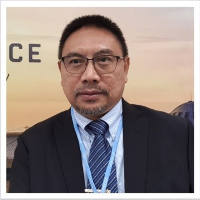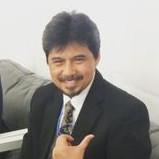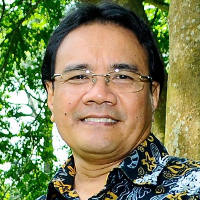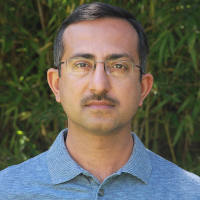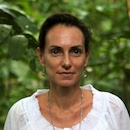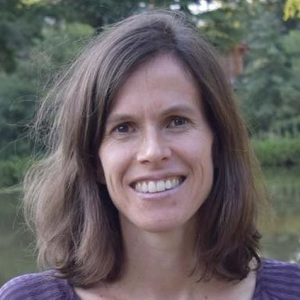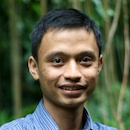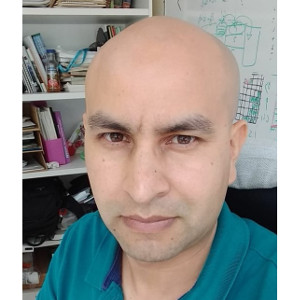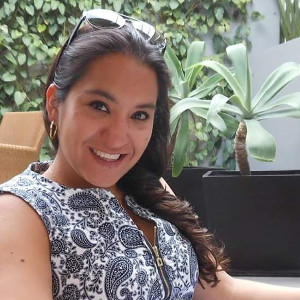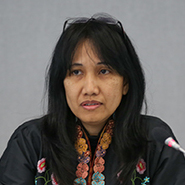Background
Under its Nationally Determined Contribution (NDC), Indonesia has committed to reducing its greenhouse gas (GHG) emissions unconditionally by 26% by 2020, and by 29% by 2030 compared to a business-as-usual scenario. The Forest Reference Emission Level (FREL), which covers emissions from deforestation, forest degradation and peat decomposition, was set at 0.57 Gt CO2e yr-1 using 1990–2012 as reference period. It was submitted to the UNFCCC in 2016 and used as the benchmark for evaluating REDD+ performance against actual emissions during the 2013–2020 implementation period.
As Indonesia ranks among the world’s top holders of high-carbon reservoir in wetlands, peatlands and mangroves have been identified as major areas for FREL improvement and national MRV systems refinement for GHG accounting. Since wetlands were not accounted separately, there are some sources of GHG that are missing in the current FREL, including: (i) emissions from fires that do not lead to deforestation or degradation (ii) annual non-CO2 GHG emissions from drained peatlands, including CH4 and N2O emissions, and (iii) emissions from dissolved organic carbon (DOC). At the same time substantial missing sinks, including: (i) regeneration and natural expansion of mangroves, (ii) standing secondary forests sinks (mangroves, peatlands and non-wetland forests), and (iii) restored and rewetted peatlands will have to be accounted for.
To this end, assessment of the transparency, accuracy, completeness, consistency and comparability (TACCC) is deem necessary to comply with UNFCCC principles. Identifying underrepresented forest dynamics (sources/sinks) in Indonesian wetlands and consequently incorporating them would eventually improve FREL estimates.
Along this line this workshop is organized to facilitate the use and familiarization of the IPCC 2013 Wetlands Supplement. The dialogue will also allow participants to explore data mining and sharing from nationally and globally available sources for use in the proposed FREL improvement.
Goal and objectives
The overall goal of the workshop is to build the capacity of officials of the Government of Indonesia (GoI) in improving and developing FREL. Therefore, the workshop is designed to have a direct interaction and two-way communication with GoI officials with the following specific objectives:
- To familiarize with the IPCC 2013 Wetlands Supplement through hands-on sessions on the use and understanding of the Wetland Supplement for peatlands and mangroves by navigating through Chapter 2 (Drained organic soils), Chapter 3 (Rewetted organic soil), and Chapter 4 (Coastal wetlands) of the Supplement; and providing scientific background for some key EF (e.g. peat fire, peat decomposition) for a better understanding on how to develop Tier 2 EF.
- To present Transparency, Accuracy, Comparability, Completeness, Consistency (TACCC) principles of the UNFCCC to improve the existing FREL 2016
- To introduce Monte Carlo simulations to estimate uncertainty values for the FREL
Program
The program is designed to allow exchange of knowledge and experience among participants and facilitators/resource persons in the following areas:
- Data identification of data availability and gaps through diagnostic processes
- Methods: Presentation of IPCC guidelines (2013 Supplement on Wetlands) and introduction to uncertainty analysis (Monte Carlo)
Expected outputs
- Participants familiarize themselves with the IPCC 2013 Supplement on Wetlands
- Participants are aware of the gaps of data and information (missing sources and sinks) to improve the FREL following quality control and quality assurance (QA/QC) exercise
- Participants are well-equipped with methods and analytical capacity to further develop an improved FREL
Welcome and Opening Remarks
Ruandha Agung Sugardiman, Director General Climate Change Control, MoEF. Click here to view the presentation material.
Keynote speech
Syaiful Anwar, Directorate Climate Change Control, MoEF. Click here to view the presentation material.
Facilitator
Daniel Murdiyarso, Principal Scientist, CIFOR
Rupesh Kumar Bhomia, CIFOR
Click here to view open discussion material.
Speakers
Kristell Hergoualc’h, CIFOR. Click here to view the presentation material.
Erin Swails, CIFOR . Click here to view the presentation material.
Daniel Murdiyarso, CIFOR . Click here to view the presentation material.
Sigit Sasmito, CIFOR . Click here to view the presentation material.
Rupesh Kumar Bhomia, CIFOR . Click here to view the presentation material.
Oswaldo Carrillo, CIFOR . Click here to view the presentation material.
Zuelclady Araujo, IDOM . Click here and here to view the presentation materials.
Belinda Margono, MoEF . Click here to view the presentation material.
Contact
Dr. Daniel MurdiyarsoPrincipal Scientist, CIFOR
Email: d.murdiyarso@cgiar.org
Wawan Gunawan
Directorate of Greenhouse Gas Inventory and Monitoring of Reporting and Verification
Directorate General for Climate Change Control Ministry of Environment and Forestry
Email: wgipb@yahoo.com

